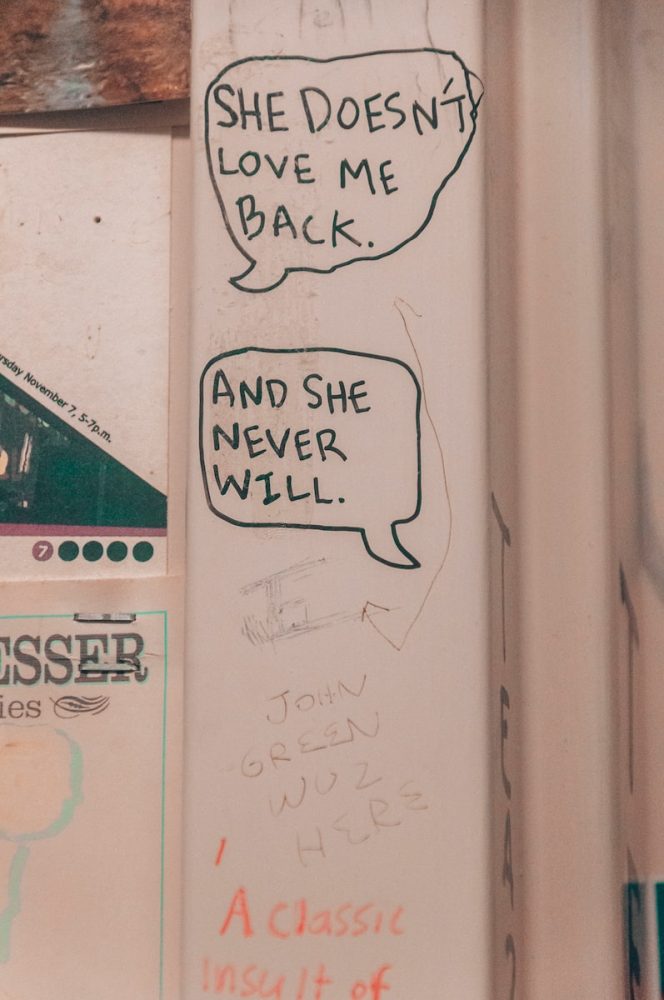Unrequited love is a common experience that many people face in their lives. It can be painful and heartbreaking, leaving one feeling rejected and unloved. As a relationship therapist, I have seen many clients who have struggled with unrequited love and the emotional toll it can take on their lives. In this article, we will explore what unrequited love is, how it affects people, and some strategies to cope with it. We will also discuss some common myths about unrequited love and ways to overcome them.
What is Unrequited Love?
Unrequited love is a one-sided love that is not reciprocated by the other person. It is often referred to as “one-sided love” or “crush,” and it can be an intense and consuming feeling. People who experience unrequited love often feel a deep longing for the other person, but the other person may not feel the same way. This can leave the person feeling rejected, unloved, and alone.
How Does Unrequited Love Affect People?
Unrequited love can have a profound impact on a person’s emotional well-being. It can cause feelings of sadness, loneliness, and depression. People who experience unrequited love may also feel rejected and have low self-esteem. It can also interfere with their ability to form new relationships and move on from the unrequited love.
What Causes Unrequited Love?
There are many reasons why we may experience unrequited love. One common cause is our own expectations and desires. We may have unrealistic expectations about the other person, or we may be seeking something from them that they are unable or unwilling to provide.
Another common cause is a lack of communication. We may not have expressed our feelings to the other person, or we may have misinterpreted their signals. In some cases, the other person may be giving mixed signals or may be unaware of our feelings.
Other factors that can contribute to unrequited love include low self-esteem, a fear of intimacy, and unresolved emotional issues from past relationships or experiences.

How to Cope with Unrequited Love
Coping with unrequited love can be a challenging and painful experience. However, there are several strategies that can help you manage your emotions and move forward.
- Accept your feelings
The first step in coping with unrequited love is to accept your feelings. It is natural to feel sad, rejected, and hopeless when someone you care about does not feel the same way. Allow yourself to grieve and process your emotions, but also try to maintain perspective. Remember that your feelings are valid, but they do not define you.
- Practice self-care
Self-care is an important aspect of coping with any type of emotional pain. Take time to care for your physical and emotional needs. This may include getting enough sleep, eating a healthy diet, exercising regularly, and engaging in activities that bring you joy and relaxation.
- Seek support
Talking to a trusted friend or family member can help you process your emotions and gain perspective. Consider reaching out to a professional therapist or counselor who can provide additional support and guidance.
- Focus on personal growth
Use this experience as an opportunity for personal growth and self-discovery. Explore your interests, set new goals, and challenge yourself to try new things. Focus on your own growth and development, rather than obsessing over the other person.
- Let go of expectations
Letting go of expectations and accepting the reality of the situation can be difficult, but it is an important step in moving forward. Try to let go of any expectations you may have had about the relationship and focus on your own happiness and well-being.
- Move on
Moving on from unrequited love can be a gradual process, but it is an essential step in healing and finding closure. This may involve distancing yourself from the other person, limiting contact, and redirecting your energy and focus towards new relationships or pursuits. It is important to remember that moving on does not mean forgetting about the other person or denying your feelings. It simply means acknowledging the reality of the situation and prioritizing your own growth and well-being.
Unrequited love can be a painful and challenging experience, but it is important to remember that it is not uncommon and that there are strategies to cope with the pain and move forward. By accepting your feelings, practicing self-care, seeking support, focusing on personal growth, letting go of expectations, and ultimately moving on, you can begin to heal and find closure.





